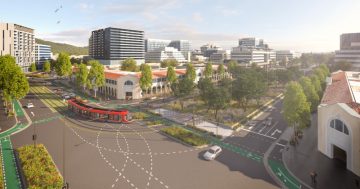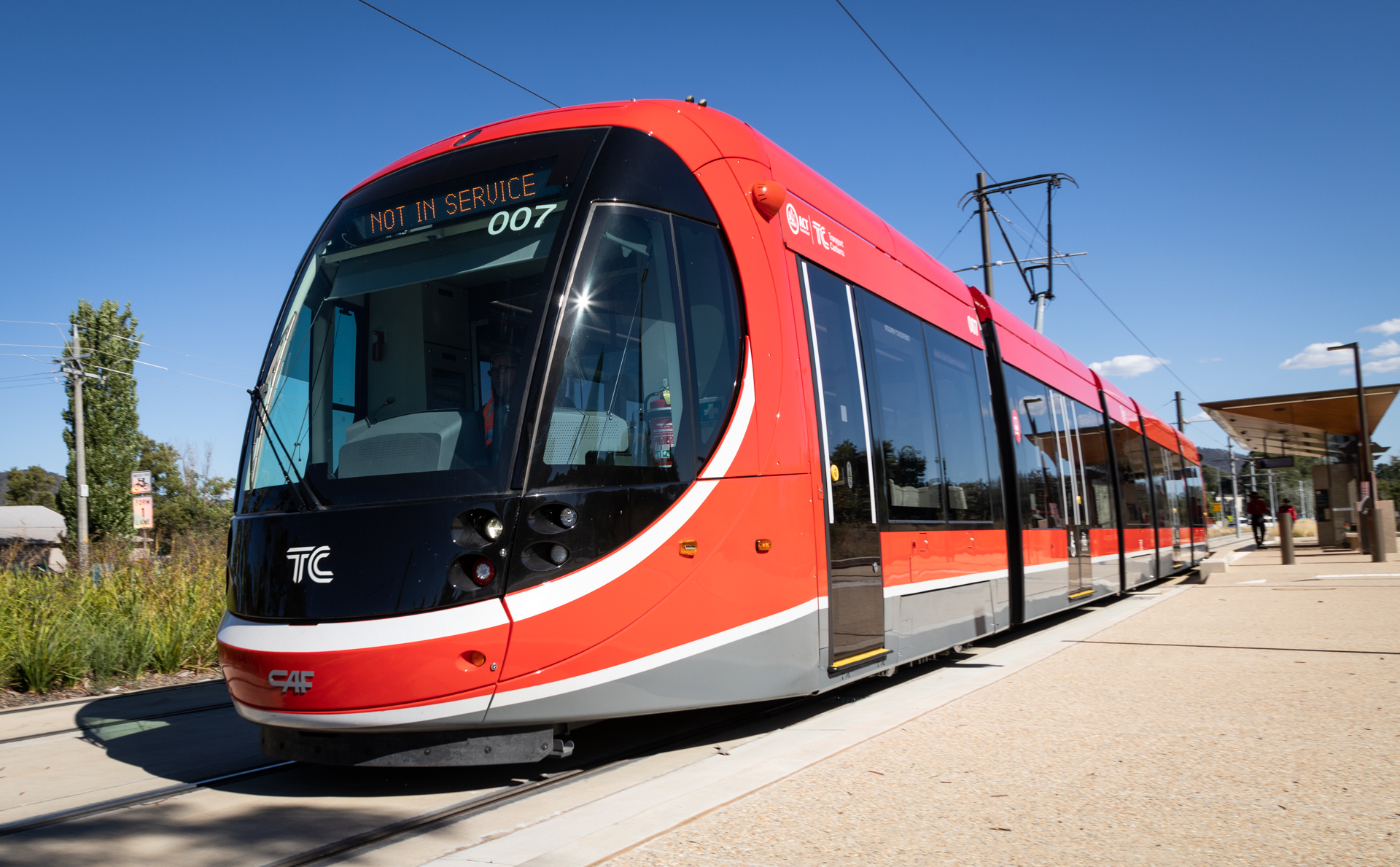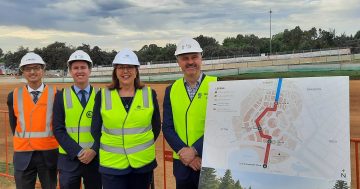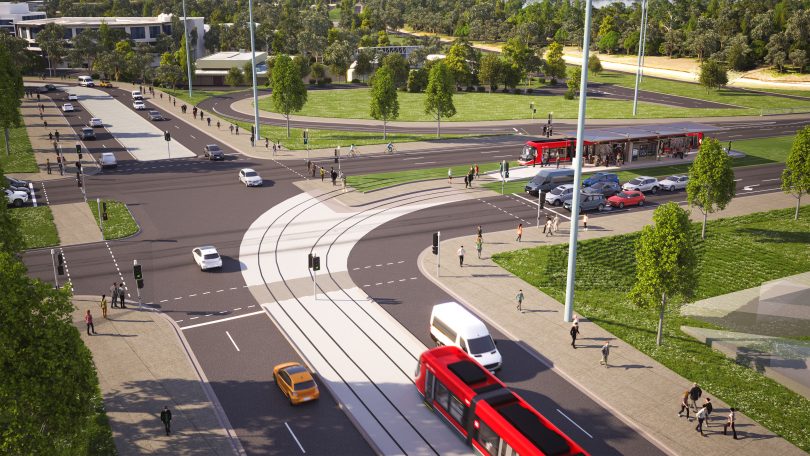
An artist’s illustration of the corner of London Circuit and Commonwealth Avenue envisaged in Light Rail Stage 2A. Photos: Supplied.
The Business Case for the next stage of Canberra’s light rail program will be probed by the ACT Auditor-General, Michael Harris, as part of the office’s next program of work.
The ACT Government has chosen to split Stage 2 to Woden into two sections – 2A to Commonwealth Park and 2B across Lake Burley Griffin through the Parliamentary Zone and on to Woden Town Centre.
Last September, it released a redacted version of the Business Case for the project, which also included the raising of London Circuit to meet Commonwealth Avenue.
The audit will examine the economic analysis underpinning the Business Case and the economic advice provided to Major Projects Canberra, as well as the factors that will determine the work schedule of Stage 2A, including those that are not directly managed by Major Projects Canberra and how these shaped the analysis of the economic benefits.
It will also look at how the government implemented the recommendations from the 2016 audit into light rail which criticised the government for not having a plan to identify, track and deliver measurable improvements of the project.
”Without a Benefits Realisation Plan there is a lack of transparency and accountability,” then Auditor-General Dr Maxine Cooper said.
She recommended that Transport Canberra and City Services develop a control procedure to help manage the project, set up independent external reviews and conduct regular public reporting of the project’s costs.
In the meantime, Stage 1 has been delivered successfully and is popular with commuters but the Auditor will want to ensure that the Business Case for Stage 2A stacks up and that the project is accountable to the public and run transparently.
The wire-free, 1.7 km extension, due to commence operations in 2024, will add three new stops to the network – City West, City South and Commonwealth Park.
Transport Minister Chris Steel said last month that Commonwealth and Territory works and planning approvals would be sought later this year. Construction work was still scheduled to begin in 2021.
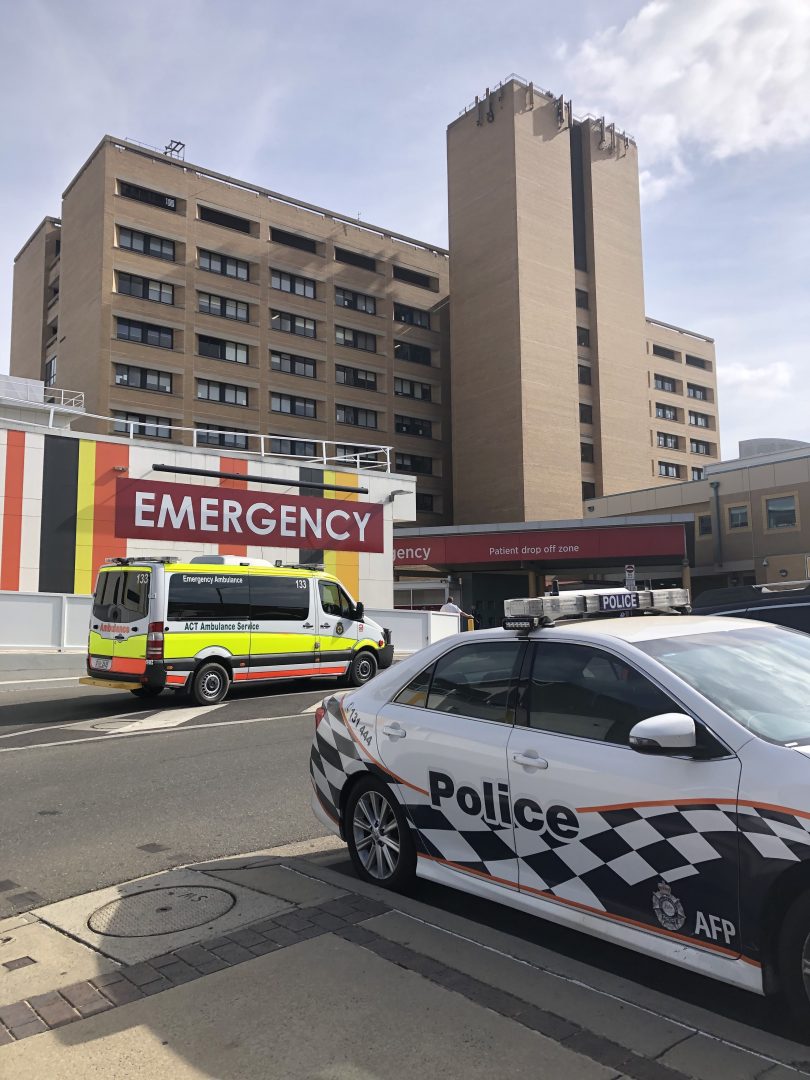
The Auditor-General will also look at the ACT Ambulance Service, which is facing increasing demands. Photo: File.
Also on the Auditor-General’s list for 2021 is the ACT Ambulance Service, which is operating in an increasingly challenging environment, characterised by an ageing population and more complex community health care needs, as well as increasing demand for primary health care services.
The audit will examine the ACT Ambulance Service’s effectiveness including its planning for managing current and future demand and the developing requirements of the community.
Another audit will cover Teaching Quality and Performance, considering the ongoing controversy over the ACT’s NAPLAN results and claims that the Territory’s school performance is declining in real terms.
The audit will consider the Education Directorate’s activities and initiatives to professionally develop and support its teachers as part of its Future of Education 10-year strategy. A key focus will be the Directorate’s effectiveness in developing and implementing system-wide strategies and initiatives across all ACT public schools.
Two aspects of the government’s digital program will be investigated – its open data policy and how it manages its Digital Records.
The open data audit will consider how the Office of the Chief Digital Officer is implementing and monitoring the open data policy and examine how agencies are preparing for open data management, their understanding of open data principles, and how well they assess data for release.
Also on the list is the government’s Emission Reductions Scheme; land management agreements; the maintenance of the ACT’s 11,800 public and community housing properties, as well as the Narrabundah Long Stay Park in Symonston and Bimberi Youth Justice Centre; the implementation of the Aboriginal and Torres Strait Islander Agreement; planning for improved efficiency of the ACT courts and mental health services for detainees at the Alexander Maconochie Centre.















